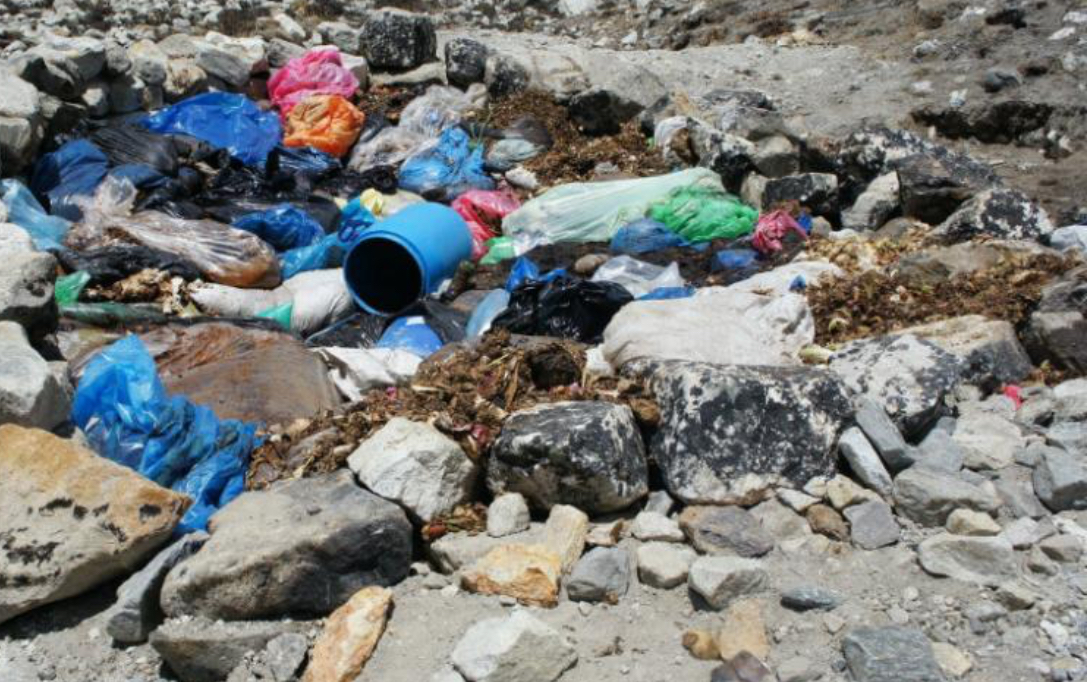Mount Everest Climbers Ordered to Carry Back Their Own Poo

Kathmandu — In a bid to address the growing pollution crisis on Mount Everest, authorities have mandated that climbers must now collect and carry back their own waste, including human excrement, from the mountain. The initiative, spearheaded by the Pasang Lhamu rural municipality, targets the pervasive issue of litter and waste accumulation, particularly in higher camps where environmental conditions inhibit decomposition.
Mingma Sherpa, chairman of the Pasang Lhamu rural municipality, expressed concerns over the deteriorating conditions on Everest, stating, “Our mountains have begun to stink.” Complaints of visible human waste on the mountain’s slopes and the adverse health effects on climbers have prompted the implementation of this new regulation.
Under the new rule, climbers embarking on Mount Everest and nearby Mount Lhotse will be required to purchase designated “poo bags” at base camp, which will be inspected upon their return. These bags, procured from the United States, contain chemicals and powders to solidify excrement and mitigate odor.
Chhiring Sherpa, CEO of the Sagarmatha Pollution Control Committee (SPCC), emphasized the urgency of the situation, citing estimates of approximately three tonnes of human waste between Everest’s base camp and camp four. The initiative aims to address this issue by providing climbers with biodegradable bags and encouraging responsible waste management practices.
Dambar Parajuli, president of the Expedition Operators Association of Nepal, voiced support for the regulation, suggesting its potential expansion to other mountains. He emphasized the need for effective implementation, citing past failures in enforcing mountaineering regulations.
While Nepal’s central government has announced previous measures to regulate mountaineering activities, critics highlight the lack of enforcement on the ground. Mingma Sherpa assured that the municipality would establish a contact office to ensure compliance with the new regulations, signaling a renewed commitment to environmental stewardship on Everest.
With mounting concerns over pollution and environmental degradation, the initiative to mandate waste management practices marks a significant step towards preserving the pristine beauty of the world’s highest peak. As climbers prepare for the upcoming season, they are tasked not only with conquering Everest’s summit but also with safeguarding its fragile ecosystem for future generations. ( Source : BBC , Navin Khadka)



















Facebook Comments